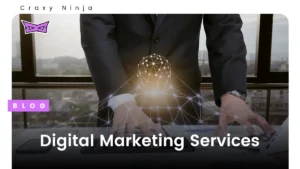Digital Marketing And E-commerce Marketing – Even though a digital marketing agency is an indispensable part of e-commerce, the two are not interchangeable because, by definition, they are two separate things.
Even though they are so interwoven, it is impossible to distinguish where one begins and the other stops since they are so intertwined. But before we get into that, let’s take a high-level look at the most crucial aspects that differentiate digital marketing from online marketing or commerce.
What Is Digital Marketing?
Digital marketing is promoting and advertising a brand online to connect a company with potential clients. The utilization of the Internet, cutting-edge technology, and various other forms of digital communication have made this accomplishment conceivable.
Benefits of Digital Marketing
The use of digital marketing services comes with a variety of advantages. These include the following:
Timeless
The ability to reach one’s target audience with the appropriate message at the appropriate moment is made possible by its timely nature.
Specific Targeting
Targeted advertising allows for specific targeting, resulting in increased brand exposure and improved customer interaction.
Develop Brand Loyalty
Fostering customer commitment to your brand will enable you to expand your business. One way to do this is to increase the frequency with which you publish content that interests your target demographic.
Wide Reach
This presents a superb opportunity to publicize your company and the services you provide to a potential audience that is without limits.
Improve Customer Loyalty
You will be able to keep your audience up to date on the latest happenings in the industry by communicating with them via email and social media. This will help to strengthen their loyalty to your brand.
Why Is Digital Marketing Important?
Moving toward digital marketing is beneficial for a variety of reasons. It is a more cost-effective method of reaching out to a larger audience and engaging with that audience directly. Digital marketing initiatives also provide opportunities to gain insightful data, which can help businesses improve their decision-making. Let’s go deeper to discover why and how digital marketing works.
Minimize Advertising Costs
Small businesses face a hurdle in marketing because of the high expense of traditional marketing. In addition, you will always have to contend with enormous corporations for available advertising space.
One of the things that can save a small business is digital marketing. Continue reading to understand how digital marketing works, which will help you reduce your marketing costs and reach a broader audience.
Reach a Larger Audience
The limits of your location do not apply to digital marketing because you can contact more individuals regardless of where they are.
When prospective customers use their mobile devices to access the web, they can connect with individuals worldwide and while they are on the move.
Offer Clients an Effective Customer Engagement Platform
You can communicate with clients who are most likely to be interested in your goods or services thanks to digital marketing and collect feedback from these customers.
In real-time, engage in a one-on-one dialogue and obtain insightful feedback regarding your brand. You will not have this privilege if you use more conventional ways of marketing.
What is E-commerce Marketing?
Marketing a company that conducts sales of its products or services online (also known as “e-commerce marketing”) entails generating interest in, as well as activity regarding, the company in question.
E-commerce marketers can attract visitors and assist online purchases through social media platforms, digital content, search engines, and email marketing campaigns.
Before we get into more specifics on what e-commerce marketing is and how you can adapt your strategy, let’s take a quick look at the definition of e-commerce advertising and how it compares to marketing for an online store.
Types of E-commerce Marketing
Here are some popular marketing channels and how you would utilize them to establish an online store as a way to give you an idea of what an e-commerce marketing strategy looks like to give you an idea of what an e-commerce marketing strategy looks like.
Content Marketing
Content marketing is marketing in which individuals are provided with access to free content throughout the internet to acquire a target audience and a possible consumer base, both of which are essential components in constructing and marketing a business.
Instead of providing a direct advantage to the firm in terms of increased sales, this strategy is utilized to establish the organization’s credibility and standing in the market.
Email Marketing
Email marketing is a term that refers to the practice of sending a commercial message to an individual or, more specifically, a group of individuals.
Email marketing is a broader term for a company sending an email to a potential or existing customer. When a company does this, we call it email marketing.
Social Media Marketing
Promoting a business or product via social media and/or websites dedicated to social media is referred to as social media marketing. It is possible to get an idea of how widespread social media is by because Facebook alone has more than 0.8 billion users.
Companies use social media platforms to increase their customer base, and some of these companies even use tools to analyze the data, expand their reach, and monitor their success. In addition, businesses can obtain inexpensive product feedback and gauge broad public reactions to their offerings by utilizing social media platforms.
Wrapping Up
E-commerce, or electronic commerce, brought traditional business practices into the 21st century by bringing them online. To put it more simply, it is business conducted through technological gadgets.
E-commerce marketing refers to the transaction of goods and services via electronic means of exchange, such as the Internet, email, and other forms of digital communication. Comparatively speaking, it takes less time, is less hassle, and is more fun than traditional shopping. You don’t need to travel to any location. If you do not have a car, this relieves some of the stress associated with organizing transportation. Additionally, it is a lot more effective.
Related: Recent Trends in Marketing








